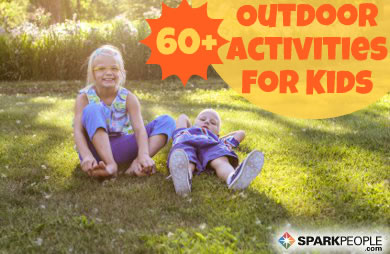|
We've often heard that being more physically active improves sleep patterns. For a lot of people, better sleep is one of the more immediate benefits of an active lifestyle. Have you found that it's easier to fall asleep if you've had a good workout earlier in the day? A new study of school-age children confirms that the greater the daytime activity level, the easier it is to fall asleep at night. And now they are measuring just how significant the benefit might be. The study enlisted over 500 7-year-old children to wear actigraphs during the day. (An actigraph is a device that measures movement.) The study found that the children took anywhere from 10 to 40 minutes to fall asleep at night. But that amount of time was directly linked to how much physical activity the children had throughout the day. "Every hour of sedentary activity during the day resulted in an additional three minutes in the time it took to fall asleep at night. And the children who fell asleep faster ultimately slept longer, getting an extra hour of sleep for every 10-minute reduction in the time it took them to drift off," according to the results. Studies involving adults have had similar results. Although this makes sense, my children don't always fit the pattern. We can have the most active and exhausting day- playing at the park, going to the zoo, or running here and there. I'm ready to pass out on the couch at 6 p.m., but they are still going strong. And when bedtime arrives, I can here them talking to themselves or playing quietly for a while before finally falling asleep. Maybe they just need time to unwind after a hectic day, but I also don't notice that they sleep any longer the next morning. Personally, I'm always more tired at the end of the day when I've spent time exercising, versus days when I've spent more time on the couch. (Although it's impossible to spend much time on the couch with a 3-year-old and 1-year-old to chase after.) What do you think? Do these results confirm what you already knew about you and/or your children? |
Popular Entries
More From SparkPeople
|



.png)










.jpg)
